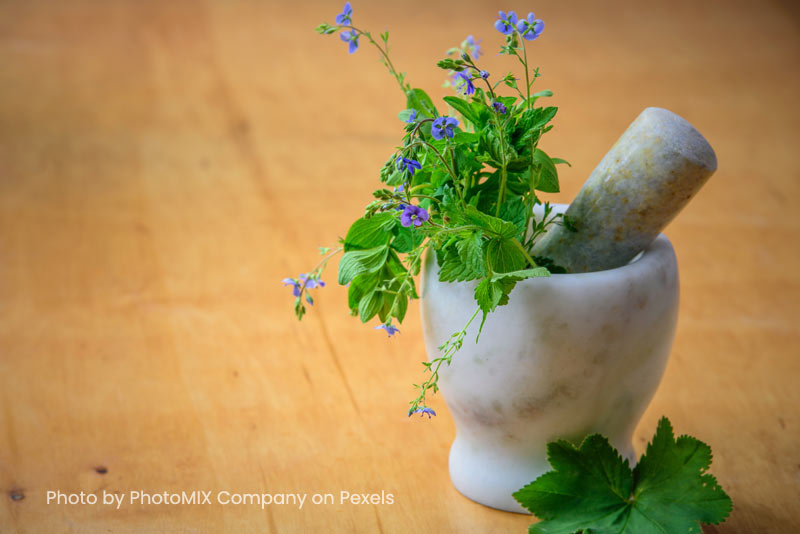
Herbal medicine and acupuncture are both core components of traditional Chinese medicine, which has evolved over thousands of years. When used together, herbal medicine and acupuncture can address various underlying physiological problems to help your body function better.
Traditional Chinese medicine (TCM) is being used by more people who find that Western medicine’s approach of combining pharmaceuticals isn’t working for them. In many instances, these medications have harsh side effects and addictive properties. Unfortunately, they also often treat symptoms rather than underlying conditions, meaning the patient isn’t in a better physical condition even after treatment.
Taken together, acupuncture and herbal medicine can improve physical function without unwanted side effects. Some of the benefits include:
- Less inflammation and increased cancer protection: Traditional Chinese medicine practices can have positive antioxidant, anti-inflammatory, anti-necrotic, and autophagic regulatory functions. Unfortunately, inflammation is at the root of many diseases and is associated with the most common health problems, including cancer, heart disease, cognitive impairment, diabetes, and autoimmune diseases. Traditional Chinese medicine patients often experience lower levels of oxidative stress and inflammation, which protects the cells, tissues, and organs from long-term disease development.
- Address unhealthy lifestyle choices: TCM treatments can help patients overcome addiction and other harmful lifestyle habits. This includes smoking, overeating, drinking, and coping with chronic pain. TCM regulates the stress response that often results in these behaviors. Additionally, it can help manage chronic stress by enhancing sleep quality and addressing hormonal imbalances.
- Reduced pain and headaches: Acupuncture is especially effective at reducing pain, as experienced with chronic headaches, arthritis, acute injuries, and back pain. By reducing this pain naturally, you can enhance your quality of life without the risk of becoming addicted to opiates.
- Improved mental health: Both acupuncture and herbal medicines can address mental health conditions, including anxiety and depression. They can also help with the symptoms of these conditions, such as insomnia and addiction. TCM can also help patients with cognitive disorders, such as Alzheimer’s disease and dementia, which are linked to heightened inflammation, free radical damage, an inability to use glucose properly, vitamin deficiencies, stress, and environmental toxins.
- Balanced hormones and improved fertility: Herbal medicines have antioxidant and anti-inflammatory compounds that can change how the nerves transmit to the brain, improving endocrine and central nervous system functions. This process can improve the body’s ability to heal itself and helps to balance hormones, including cortisol, insulin, testosterone, and estrogen. Acupuncture, in particular, plays a positive role in hormonal balance and helping infertility. Modulating the peripheral nervous systems can improve uterine blood flow and decrease the effects of depression, anxiety, and stress on the menstrual cycle.
- Improved liver function: A Western diet, which is often highly processed and loaded with unhealthy fats, sugar, and too much salt, can contribute to liver disease. As the liver is an important organ in TCM, this organ is most affected by stress and emotion. TCM recognizes the link between liver damage and obesity, fatigue, indigestion, emotional stress, insomnia, and other symptoms. It can help restore the body’s proper pH and prevent deficiencies of key minerals. Acupuncture can also stimulate liver function, improve blood flow, and relieve tension induced by stress.
- Improved muscle strength, flexibility, and balance: TCM is beneficial for improving muscle recovery and preventing injuries, especially those that become more likely as one grows older. The body can maintain optimal physical condition by increasing blood flow, regulating the stress response, and decreasing muscle tension through acupuncture.
- Regulates stress response: There can be no doubt that the modern lifestyle has increased stress levels, which in turn, increases mental health disorders and physical ailments. TCM can reduce stress levels, particularly those related to emotional trauma and negative energies, such as resentment, anxiety, bitterness, and depression. Releasing these negative emotions lowers the body’s fight-or-flight response. The effect of this process can be physical benefits, such as reduced blood pressure and muscle tension, better sleep, and increased energy levels.
- A holistic, all-natural, and individualized approach: Whereas Western medicine focuses on treating symptoms, acupuncture and herbal medicine treat the entire person, including their mind, body, and spirit. By correcting internal imbalances, you can address more problems simultaneously. Additionally, TCM minimizes the use of medications in favor of all-natural supplements, which reduces the likelihood of addiction or side effects. And TCM can be individualized for tailored treatment for each individual and their specific combination of health challenges.
Acupuncture and herbal medicine provide many mental, emotional, and physical benefits. To learn more about TCM, contact MK Integrative Wellness today.
MK Integrative Wellness offers various natural and herbal medicine options that use naturopathic medicine principles, from consultations, acupuncture, customized herbal formulations, natural pain management, and more. Our team can proactively help you manage your health and wellness through natural medicine options.
